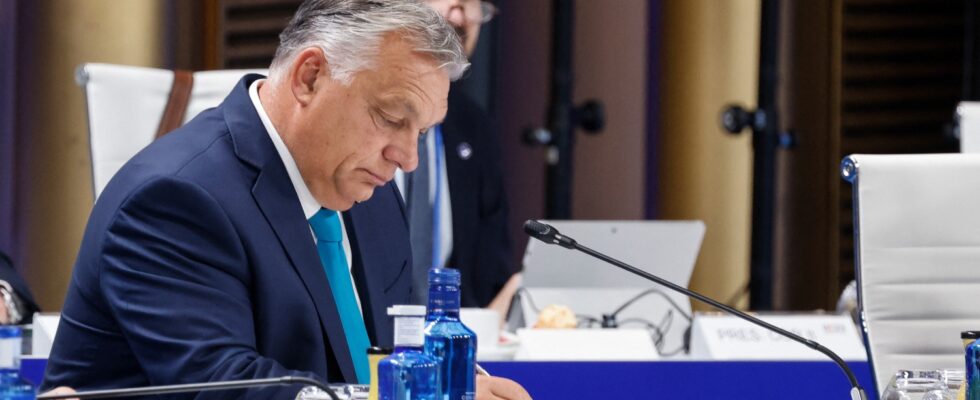Hungarian Prime Minister Viktor Orban demanded on Friday that “all European funds” be paid to his country, of which billions of euros remain blocked, before possibly considering lifting his veto on new aid in favor of Ukraine. “I have always said that if we proceeded with an amendment to the EU budget (…), Hungary would seize the opportunity to clearly demand what it deserves. Not half, not a quarter, but totality,” the nationalist leader said in an interview on state radio.
50 billion euros in aid blocked
He postponed the deadline to February, the date of a next extraordinary summit. “We should then have a better idea of what is happening with the funds,” he said. The leaders of the European Union meeting in Brussels failed during the night from Thursday to Friday to convince Hungary to lift its veto. The EU had planned to provide Ukraine with aid of 50 billion euros, 33 billion in loans and 17 billion euros in grants, over four years starting next year.
This new tranche is considered crucial in kyiv at a time when American funding of more than 60 billion dollars remains blocked in Congress due to reluctance from Republican elected officials. “We want to be treated fairly, and now we have a good chance to make our point,” said Viktor Orban.
Opening of accession negotiations with Ukraine
The Commission announced on Wednesday the release of some 10 billion euros for Hungary. But 21 billion remain frozen by the EU within the framework of various procedures, due to the breaches of the rule of law criticized in Budapest. The Hungarian Prime Minister, however, agreed on Thursday not to block the opening of accession negotiations with Ukraine. He abstained and left the room during the vote.
The other 26 members “put forward a decisive argument: Hungary had nothing to lose, given that the final word rests with national parliaments”, explained Viktor Orban. “And until then, it’s a long, very long process, with at least 75 other opportunities to stop the process,” he added, repeating that in his eyes it was a ” bad decision that Hungary did not want to have on its conscience.”
